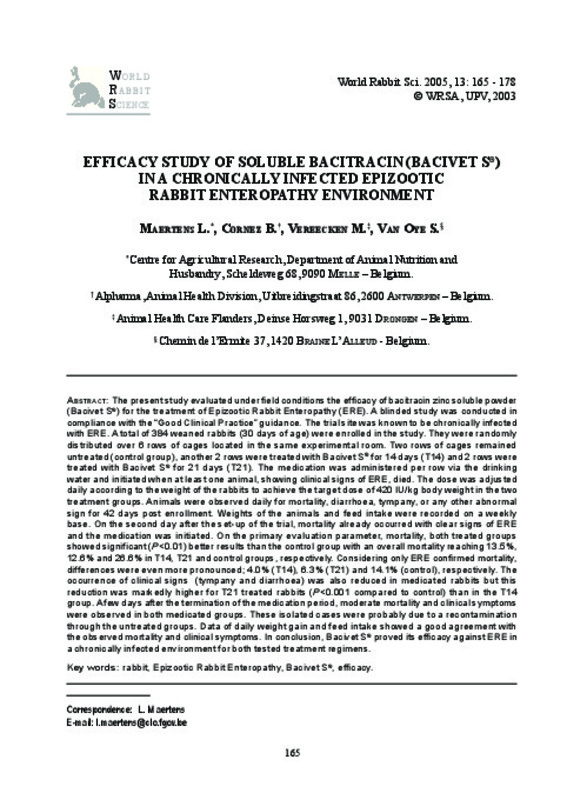JavaScript is disabled for your browser. Some features of this site may not work without it.
Buscar en RiuNet
Listar
Mi cuenta
Estadísticas
Ayuda RiuNet
Admin. UPV
Efficacy study of soluble bacitracin (Bacivet S(R)) in a chronically infected epizootic rabbit enteropathy environment
Mostrar el registro completo del ítem
Maertens, L.; Cornez, B.; Vereecken, M.; Van Oye, S. (2005). Efficacy study of soluble bacitracin (Bacivet S(R)) in a chronically infected epizootic rabbit enteropathy environment. World Rabbit Science. 13(3). https://doi.org/10.4995/wrs.2005.520
Por favor, use este identificador para citar o enlazar este ítem: http://hdl.handle.net/10251/9710
Ficheros en el ítem
Metadatos del ítem
| Título: | Efficacy study of soluble bacitracin (Bacivet S(R)) in a chronically infected epizootic rabbit enteropathy environment | |
| Autor: | Maertens, L. Cornez, B. Vereecken, M. Van Oye, S. | |
| Fecha difusión: |
|
|
| Resumen: |
[EN] The present study evaluated under field conditions the efficacy of bacitracin zinc soluble powder (Bacivet S(R) ) for the treatment of Epizootic Rabbit Enteropathy (ERE). A blinded study was conducted in compliance ...[+]
|
|
| Palabras clave: |
|
|
| Derechos de uso: | Reserva de todos los derechos | |
| Fuente: |
|
|
| DOI: |
|
|
| Editorial: |
|
|
| Versión del editor: | https://doi.org/10.4995/wrs.2005.520 | |
| Tipo: |
|








